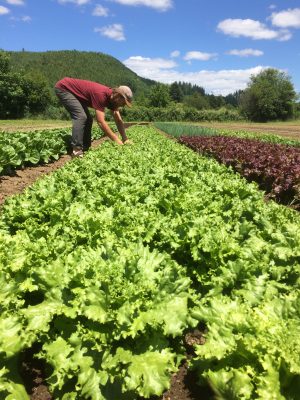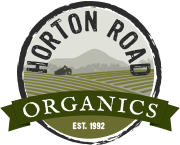As anyone who has ever been immersed in a new area of study can attest to, the initial learning curve tends to be grand. I can say that I’ve learned quite a lot within just the past two months of living and working on the farm. As I reflect on the concrete things I’ve learned, I realize that it’s already a lengthy list. Including the ins and outs of such broad topics as searching for and purchasing farm land, selecting what to grow, sowing seeds, cultivation and plant care, soil science and soil care, irrigation methods, greenhouse use, pest and disease control, harvesting, produce pricing, and incorporating into the community. All of which have their own subtopics and all of which I feel I’ve just begun to scratch the surface of. The vast knowledge that is out there and it’s open-ended nature is fun and inspirational. Yet despite the concreteness of the many skillful how-tos, I sense another layer of learning that’s a bit more difficult to express. There is a way that things are done here that, for me, has been enlightening on my own path to discovering purpose in farming. It’s expressed in simple manners – perhaps in Bill’s reliable grain of salt at the end of a discussion that what we’ve learned is just how it’s done here and that there is no one right answer of approach. Or in the concentration that’s formed while harvesting salad greens with our hands and knives as our simple tools. Or seeing and experiencing the direct affect of a farm bed with overly wet and chunky soil on the plant germination and ultimately the harvest load a month into the future.
As I reflected on the importance of underlying topics that I’ve learned while farming here, I thought it would be a good practice for both myself and for our extended farm community (you), to try to get at least a few of them down clearly. Perhaps this may serve as a window into what’s going on here at Horton Road and what we all share in. While I’m sure all of us are forming and living out different forms of purpose, these ideas are surely proving to be strong in shaping mine:
- Working with the changing and
sometimes(no, at least half the time) unpredictable natural world- Once accepted as the way it is, the sense of interconnectedness to the earth that this brings points to a way of life of all other beings and that of our own human ancestors. The openness that this requires is inspiring.
- This interconnectedness has an inherent loss of the illusion of control. We cannot control our environment, no matter how hard we try, and we will often be much more at peace when we accept this. This also creates the excitement of ongoing problem solving to constantly adapt to what nature has in store.
- Sharing a clean and healthy energy source for the community
- How the plants are farmed here ensures that the soil and the plants are happy and peaceful. How they are then shared is also an art in itself. This in turn provides clean energy for the people of the community to go out and extend it in their own unique ways. Soil health, plant health, self health, community health, world health.
- Taking care of the earth (we here at Horton Road Organics are soil farmers!)
- This choice requires an acknowledgment of the abundance that is provided for us by the earth.
- The caring for the earth and for others brings about a sense of selflessness. I just finished a pretty great book called How Can I Help? that addresses the delicate notion of helping while remaining open, not allowing the labels of helper and helped to get in the way. I highly recommend checking it out.

Derek is from Eastern Pennsylvania and is here for his first ever organic farming apprenticeship. He is enjoying his first time living in the Pacific Northwest and is excited to see where and what his experience at Horton Road Organics may lead to.
